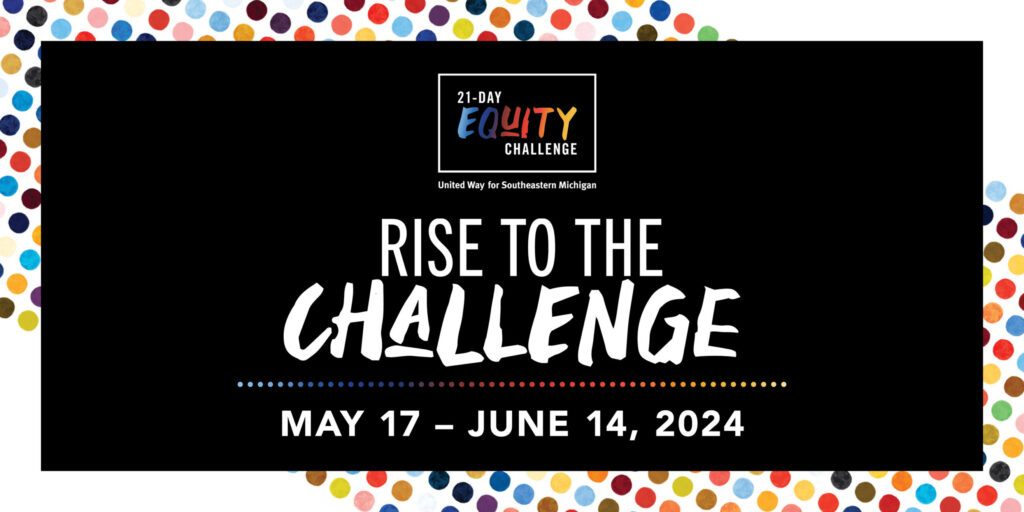Racial Equity Fund Combats Every Level of Racism
Published on May 7, 2024 in Diversity, Equity and Inclusion
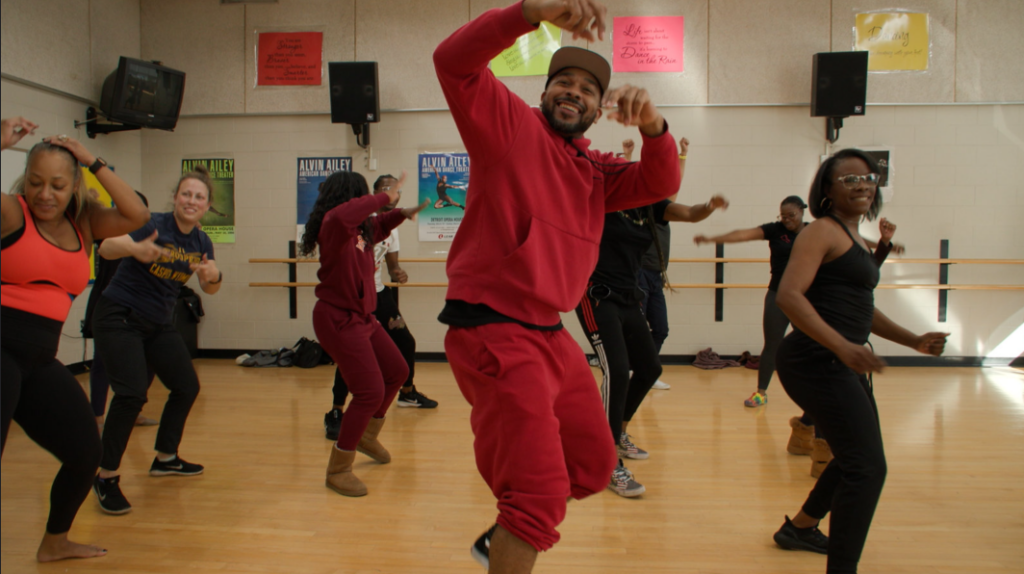
United Way for Southeastern Michigan is committed to creating equitable communities where households are stable and children can thrive. Through initiatives like our 21-Day Equity Challenge and our Racial Equity Fund (REF), we aim to fight racism on every level that it appears. There are four levels of racism including internalized, interpersonal, institutional and structural. We understand that in order to achieve true justice and liberation, individuals, and public and private organizations must combat racism at each of these levels.
The REF provides financial support and technical, capacity building assistance to Black, Indigenous and people of color (BIPOC)-led organizations, empowering those most harmed by systemic oppression to thrive and reach their full potential.
Between 2022 and 2024, a total of 84 BIPOC-led organizations received grants between $10,000 and $50,000 to address racial inequities. A total investment of $3.2 million was distributed between three cohorts. An additional $200,000 was distributed to seven Washtenaw County nonprofits this spring, following the merger.
“Our central goal is to create with community equitable opportunities for BIPOC leaders and organizations that are in closest proximity to the expressed inequities and empower them with the resources and support necessary to make sustainable change in the lives of residents in our region,” said Andre Ebron, senior director, Diversity, Equity, and Inclusion at United Way for Southeastern Michigan.
By funding organizations who cater to different levels of racism, we can combat inequality wherever it arises. Below we map out each of the four levels of racism and how our REF supported partners have combatted them.
Heritage Works Against Internalized Racism
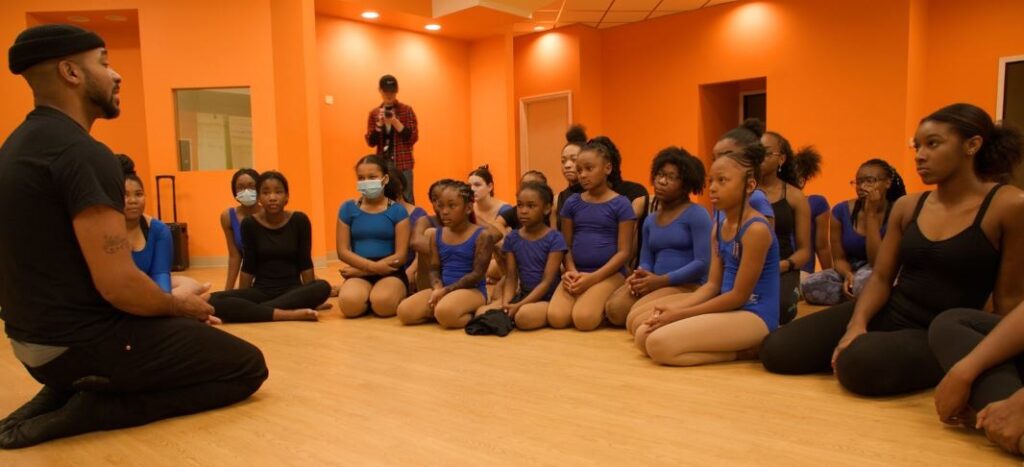
Every day we receive cultural messaging, which is internalized in our beliefs. In western society, white supremacy has been a cultural norm. When we are feed media about the superiority of White people and the inferiority of people of color, this can lead to internalized racism. Internalized racism is a set of privately held prejudices that manifests for people of color as internalized oppression and for White people as internalized superiority.
To combat internalized racism, the REF has elevated Heritage Works for their work promoting youth development through cultural traditions, arts, and education. The Detroit-based community organization originated to preserve and showcase African heritage through dance. The founder, Rhonda Green, recognizes the effects of Western norms on people of African descent.
“The majority of children in Detroit are of African descent and so they need things that are culturally relevant to them,” said Rhonda. “It creates space for people of African descent to feel good about themselves and to embrace their bodies instead of assimilating to Western norms.”
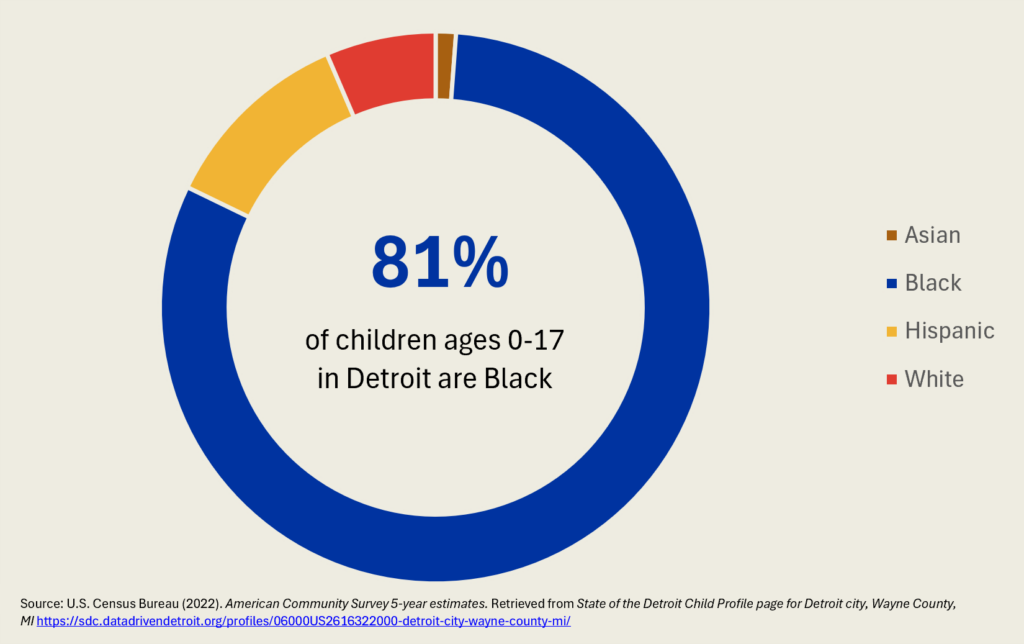
The connection to African culture created through this active educational environment reinvigorates the youth’s confidence to stand up against these internalized Western norms. The elevation of these beautiful cultural practices can help to free the individual from internalized oppression.
The REF supports organizations who drive us all forward, challenge our internalized notions and give us the opportunity to rise above cultural norms.
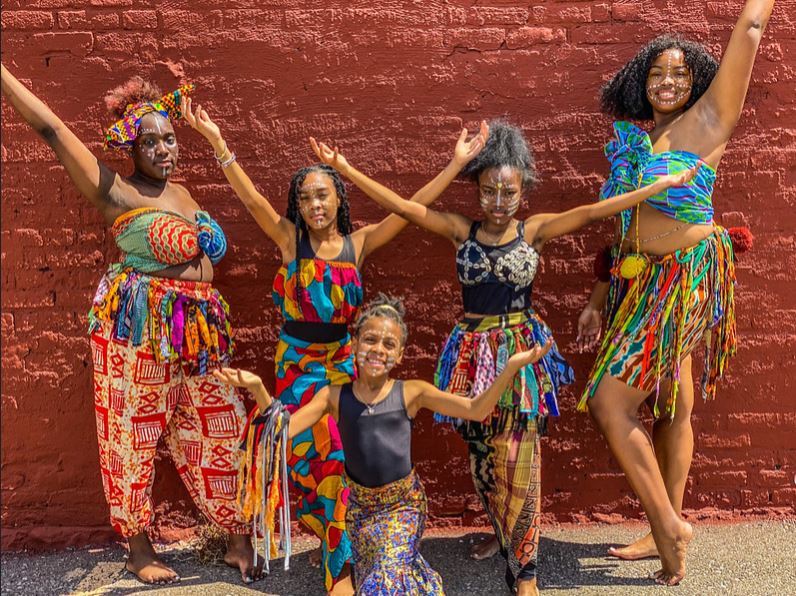
Detroiters Healing from Interpersonal Racism
When our internalized beliefs about race are externally expressed to others, we arrive at the next level of racism: interpersonal racism. This is one of the most common visualizers of racism, which can include anything from hate crimes to microaggressions.
Detroit Heals Detroit is aware of the impact that interpersonal racism has on mental health. They have committed to focusing on “collective practices that can impact and transform the consequences of oppression on our bodies, hearts and minds.” Working hard to transform the negative consequences of interpersonal racism into a healing and learning experience for both the individual and the community.

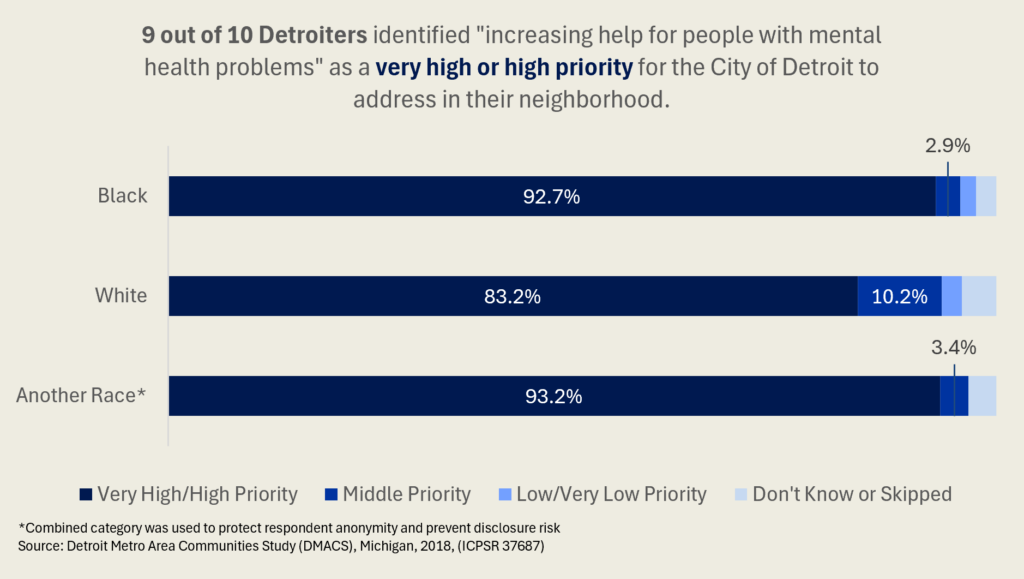
In their Youth-Led Healing Hub, the mission is to “lead community healing and learn strategies to advocate for ourselves and others, to deepen our own and others knowledge, & to illuminate the lives we live and the worlds we are a part of.” Through advocacy and elevation of these traumatic experiences, the entire youth group learns to interact in the world differently. Detroit Heals Detroit is taking a leadership role in community healing and creating a space for collective growth.
Detroit Heals Detroit gives us the opportunity to stand up against racist trauma. By creating the space to listen to one another and address interpersonal racism, this organization is actively healing the collective. The REF encourages these tough discussions for the betterment of the entire community.
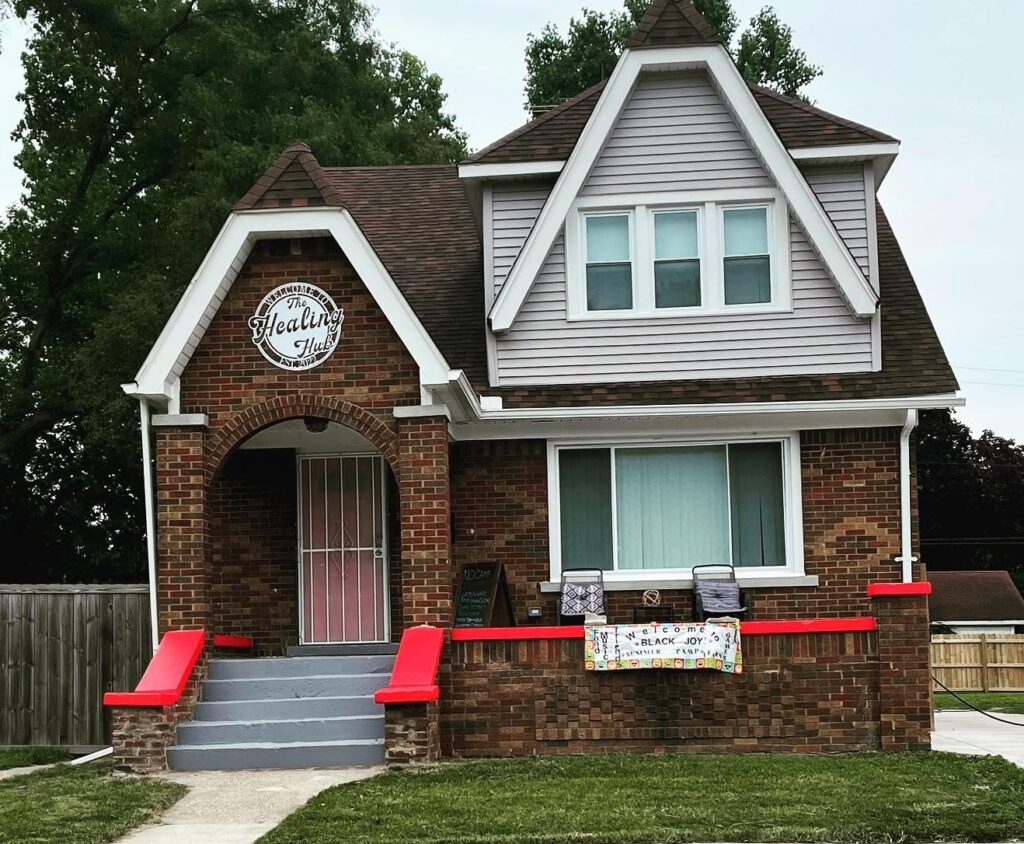
Freeing Pregnant Women from Institutional Racism
Racism is not just held by individuals— even our institutions can be racist. Institutional racism refers to discriminatory treatment, unfair practices, and inequitable opportunities that routinely produce advantages for White people and disadvantages for people of color. Individuals within the institution are not just internalizing racism or having interpersonal racist moments, but instead they take on the power of the institution to carry out racial inequalities.
Hospitals are a glaring example of institutional racism, where we see inequitable opportunities, discriminatory treatment, and unfair policies contribute to the loss of life for Black women and children. There is a great divide in the quality-of-care Black women routinely experience, with increased risks and mortality during pregnancy and childbirth. According to the CDC, Black women are 3x more likely to die from a pregnancy-related cause than White women.
The battle against such a large level of racism requires supplying alternative and additional support to Black women who are disadvantaged in the medical field. For this reason, the REF uplifts Birth Detroit, an organization that is keenly aware of the shortcomings in the medical industry for Black women.
Birth Detroit began offering maternal health care services in 2019. They offer prenatal and postpartum care by midwives, as well as childbirth education. At their appointments, people experience warm, personalized, and respectful care. People are able to get confirmation of pregnancy, prenatal screenings and labs, and ultrasounds. Not to mention education, nutrition and breastfeeding support, labor preparation and referrals to trusted provider for birth.

Today, Birth Detroit is working to open the first birth center in Detroit. Their community birth center will provide culturally relevant care to meet the needs of communities of color. Birth Detroit is designing the center to honor cultural and spiritual traditions, reflect stories and dreams, and heal the frustrations and traumas of people who are not usually centered in the design of healthcare spaces.
Taking a Stand against Structural Racism in Pontiac
The widest reaching and last level of racism describes the system in which public policies, institutional practices, and cultural norms work together to perpetuate racial group inequalities. Structural racism exists across intuitions and society. The compounding effects of history, culture, ideology, combined with the interactions of institutions result in a systematic privilege of White people and disadvantage of people of color.
The combination of structurally oppressive forces can decrease the quality of life for an entire city. For example, Black people comprise nearly 50% of Pontiac residents and they are more likely to be living below the poverty line. When compared to a nearby city, Bloomfield Hills, residents have drastic differences in life expectancy. A baby born in Bloomfield Hills can expect to live to 84.6 years old, but the same child born in Pontiac would only reach 65.7 years.
The Pontiac Community Foundation’s mission is to improve the overall quality of life for Pontiac residents. In 2021, the organization assembled a group of community members to explore social determinants of health and the critical life expectancy gap in the City of Pontiac. To battle something as big as structural racism, the foundation listens to the people to find out what the community needs to thrive. This communication between community and foundation allows for them to target the problems that are hurting citizens the most.

During COVID-19 pandemic, the team launched MyCOVIDResponse which provided over 750,000 meals to at-risk populations and served over 8,400 individuals. Then, in response to hearing about transportation needs, the Pontiac Community Foundation created the M1 Mobility initiative – which has provided transportation to and from summer programs for more than 500 children. There is even an expansion in the works to provide transportation for seniors and adults.
Community organizations must work together to combat the wide-reaching effects of structural racism. The Pontiac Community Foundation recently created the Pontiac Impact Challenge, equipping local nonprofits with the tools and resources to engage community members in a crowdfunding campaign. One of the winners, The Art Experience, won $5,000 through the challenge and went on to launch free monthly art therapy sessions via Zoom.
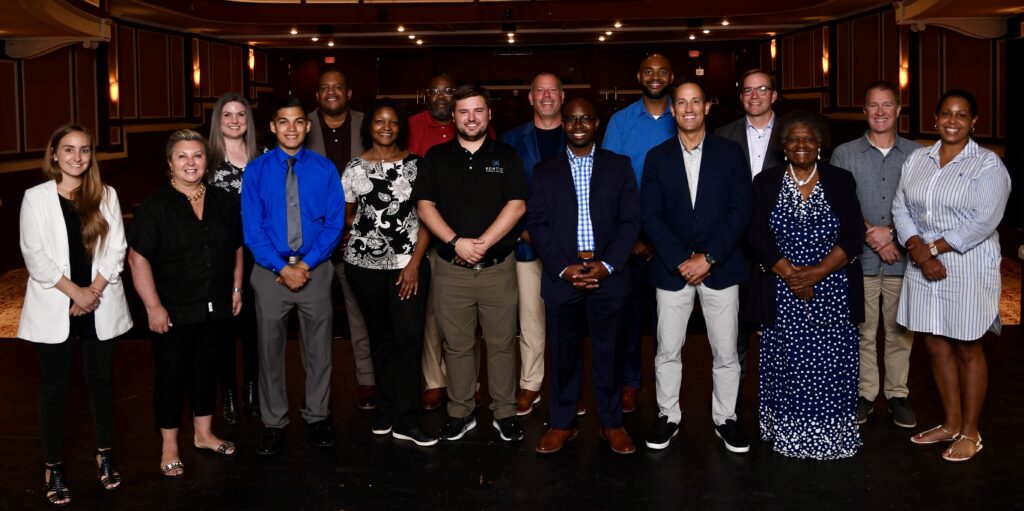
The Pontiac Community Foundation has the right idea in uplifting others so they can help better the community. In short, more hands make less work. And that is the purpose of the Racial Equity Fund in supporting large cohorts of organizations, REF paves the way for us to fight against every level of racism.
Interested in creating a more equitable community? Join the fourth annual 21-Day Equity Challenge for daily learning and weekly opportunities to get involved in the community!
